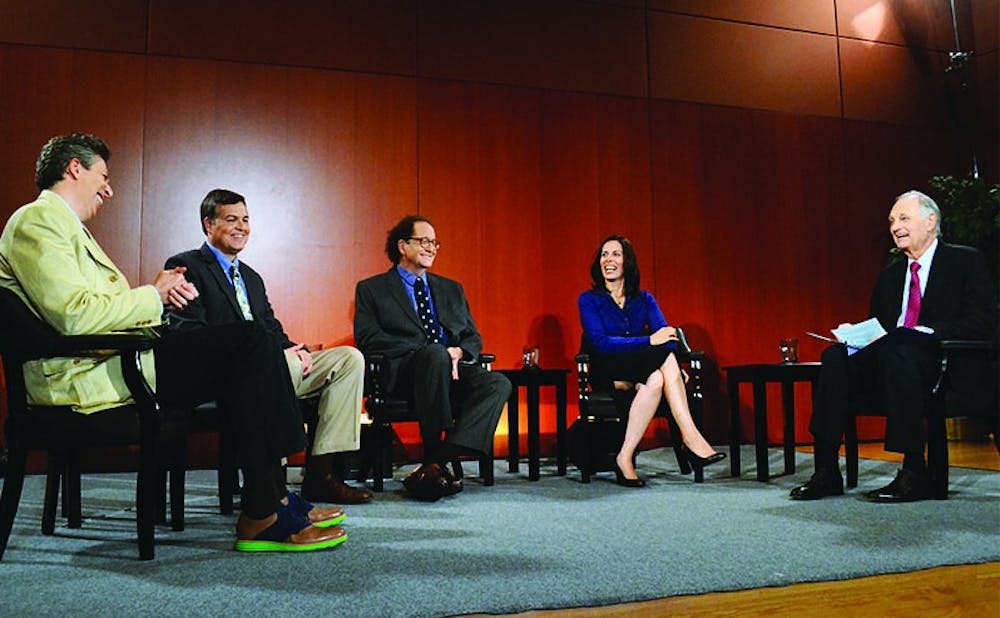Brain scans that can see your thoughts have major ramifications for law and ethics, as shown in a new PBS documentary featuring Duke professors.
“Brains on Trial with Alan Alda” investigates how developments in brain scanning could be used in courtrooms—and what the accompanying ethical implications might be. The program’s host, actor Alan Alda, led a discussion on the topic with four Duke professors at the Nasher Museum of Art Wednesday afternoon.
“In an increasing number of cases, jurors are starting to hear about neuroscience,” said Nita Farahany, a professor with joint appointments in the School of Law and Institute for Genome Sciences and Policy.
Recent technology, notably functional magnetic resonance imaging, allows scientists to monitor a person’s brain activity while he responds to questions—essentially, the program explains, to see inside a person’s mind in order to determine if one is lying. Brain scans could be used for tasks such as verifying alibis and proving facial recognition.
But the technology is not being widely used as evidence in courtrooms just yet.
“There are some very basic questions we’re still grappling with,” said Ahmad Hariri, professor of psychology and neuroscience and an investigator at the IGSP.
Farahany noted that it is possible for a person to “game” the system by focusing their attention elsewhere while answering questions, meaning that the brain scans can not guarantee accuracy. But this should not necessarily discredit an fMRI from being used in the courtroom, she said.
“It isn’t the objective truth, it’s just one more piece of information,” Farahany said, adding that juries should consider brain scan results as a additional perspective to be viewed in proper context.
Members of the panel noted that other forms of evidence—including polygraph tests, fingerprints and eyewitness testimony—also have room for error.
“Memories themselves are constantly changing,” Hariri said, noting that this makes any personal recollection imperfect as evidence.
There are also ethical questions surrounding the technology, noted panelist Walter Sinnott-Armstrong, the Chauncey Stillman professor of practical ethics.
“It’s very scary,” Sinnott-Armstrong said. “It threatens, I think, a very basic sense of privacy.”
The panel noted additional junctions of law and neuroscience, such as the potential to identify indications of psychopathy through brain scans as well as the potential ability to determine the neurological maturity of adolescent criminals.
“It’s an exciting frontier in brain science,” said Scott Huettel, the Jerry and Patricia Hubbard professor of psychology and neuroscience
The first half of “Brains on Trial” aired Wednesday night and the second half will air on September 18 at 10:00 p.m on UNC-TV. The Duke panel discussion will air Thursday at 10:00 p.m. on UNC-TV.
Get The Chronicle straight to your inbox
Signup for our weekly newsletter. Cancel at any time.

